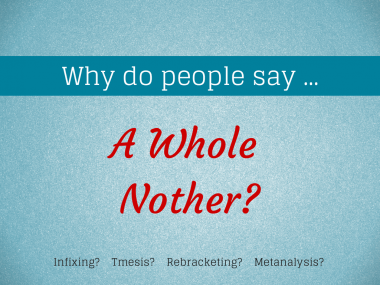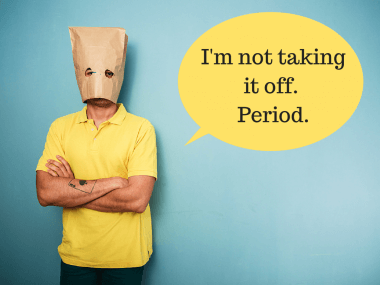Why Do People Talk About Being ‘Out of Spoons’?
If you’ve been wondering why people are talking about not having enough spoons when they’re tired, I have the scoop on “spoon theory.”
A few months ago, I started to notice people talking about spoons in a weird way.
First, my amazing fiction writing and podcasting friend Mur Lafferty tweeted, “I have no spoons for making decisions today.” And then just a few days later, a linguist friend named Lauren Ackerman tweeted, “Trying to remind myself that just because I have *some* spoons does not mean I have *enough* spoons,” And I’m like, “What is up with all these spoon references?” And maybe you’ve heard something like this and wondered too.
So I got a general sense of what it means from the context – spoons are a metaphor for energy – but why spoons?
Well, you won’t find it in any major dictionary, and I have to confess that for reasons I can’t remember now, I thought it had something to do with “Game of Thrones,” but of course, it does not. It turns out this really useful concept, which is called spoon theory, also isn’t that new. It’s actually been around since 2003, but I do think it’s moving more into the mainstream.
Here’s the deal:
The origin of spoon theory
A woman with lupus named Christine Miserandino came up with the metaphor on the fly when she was a college student, and her good friend and roommate asked her what it felt like to have lupus – not what the symptoms were, but what it felt like to live with lupus.
The two women were in a dining hall, and after casting around for a few seconds, Christine grabbed a bunch of spoons and handed them to her friend. Then she said something like “Imagine that every time you do something, it costs you a spoon.” Getting out of bed? One spoon gone. She took a spoon away. Showering? Another spoon gone. And so on. She went on to explain that people with disabilities or who are sick start with fewer spoons than other people, and some things that wouldn’t cost a healthy person any spoons at all, like maybe getting dressed, can cost someone with lupus a spoon or two.
And the friend started to realize that Christine had to manage her metaphorical spoons because she only got so many each day. When you have a chronic illness or disability, you aren’t going to be able to do every single thing you want or need to do before you run out of spoons.
Christine wrote up the story on her blog, butyoudontlooksick.com (which seemed to be down because of a technical problem at our time of publication but is also available through the Internet Archive), and spoon theory was born.
Spoonies
People have found this concept so useful that it’s become widespread, and people even use the hashtag #spoonie in posts that talk about illness or managing energy, and people sometimes refer to the “spoonie community.”
Verbing spoons
And people are coming up with more and more creative ways to use the concept. For example, you can talk about having a “low spoon day,” and I even saw someone use it as a verb and say they were “spooned out right now.”
If you’ve been curious about references to spoons like I’ve been, that’s the scoop. I hope you found the answer as fascinating as I did.
Image courtesy of Shutterstock.






